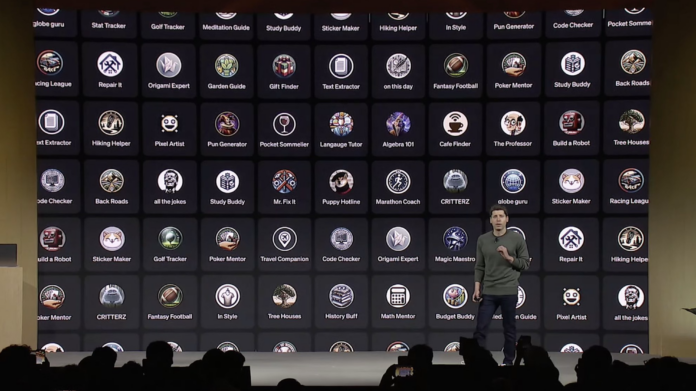In a shift from the standard tech launch, OpenAI has carved out a fresh commercial niche with its latest venture, the GPT Store. Unveiled amidst the digital hustle of its DevDay event, the GPT Store emerges as a novel marketplace, one where AI’s cognitive capabilities are bartered, and the line between developer and user is beautifully blurred.
The proposition is simple yet audacious: empower anyone to tailor and trade in artificial intelligence. The GPT Store is not just an app store but a breeding ground for bespoke GPT-powered agents—each crafted to perform tasks as varied as the human imagination. From productivity wizards to conversational companions, these MiniGPTs can be customised and commercialised, providing an income stream to their creators based on how often they are used.
For OpenAI, this is more than a release; it’s a recalibration of the AI ecosystem. It marks a transition from a landscape where big players hold sway to a more democratic space where the underdog coder and the garage visionary hold the reins. The developer no longer merely serves the platform; they now sit at the helm, steering their ingenuity into uncharted territories of the AI marketplace.
While the GPT Store promises a renaissance of innovation, it also casts a web of worry. The idea of user-generated AI raises the spectre of quality and ethicality—questions bubble up about how OpenAI will oversee the myriad minds populating its digital shelves. Will the pursuit of creativity come at the cost of consistency? How will the firm ensure that these AI agents act responsibly?
Furthermore, as this market of minds burgeons, it’s poised to ripple through the job sector. The implications are bifold: AI agents could either emerge as invaluable allies, augmenting human capabilities, or as rivals in an already competitive job market. As AI permeates through industries with newfound ease, it could redefine roles and reskill the workforce.
Yet, perhaps the most poignant concern nestles in the realm of data security and privacy. In a store where anyone can develop an AI agent, how will user data be guarded? The open market is a double-edged sword, and OpenAI’s stewardship will be critical in maintaining the fine balance between innovation and safety.
Despite the challenges, the GPT Store signifies a disruptive surge that could unsettle the titans of tech. In enabling individual developers to monetise their AI constructs, OpenAI has not just launched a product; it has ignited the potential for a new wave of entrepreneurship. It is a platform where David can craft his sling to rival Goliath—where innovation is limited only by imagination, and the market is as wild and free as the minds that fuel it.
OpenAI’s GPT Store is not just a story about technology; it’s a narrative about empowerment, creativity, and the future of digital commerce. As the dust settles on the announcement, the tech world watches with bated breath, eager to see how this new chapter in AI unfolds. The GPT Bazaar is open for business, and the only currency is ingenuity.


